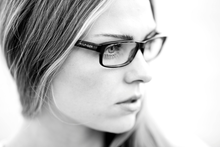“Illegal Immigrants Receiving Greater Benefits Than Americans”: Trump Administration Targets Tuition Aid for Undocumented Students
Input
Modified
“No Tuition Benefits for Undocumented Immigrants” Justice Department Files Wave of Lawsuits Policies in Texas, Kentucky, Among Key Targets

The administration of President Donald Trump, pursuing sweeping immigration crackdowns, has moved to block state-level tuition support programs for undocumented college students. By filing lawsuits against states that subsidize tuition for these students, the federal government has triggered the suspension of financial aid in multiple jurisdictions.
22 States and Washington, D.C. Continue Tuition Support for Undocumented Students
According to the New York Times on the 4th (local time), “some states have recently terminated student aid programs for undocumented college students,” noting that “the Justice Department has challenged policies in several states that provide in-state tuition to illegal immigrants, arguing such measures discriminate against U.S. citizens.” To date, 22 states and Washington, D.C. have extended in-state tuition rates to undocumented students. The “President’s Alliance on Higher Education and Immigration,” a bipartisan coalition of university leaders, estimates that about 510,000 undocumented students are enrolled in U.S. colleges, accounting for 2.4% of the total higher education population.
Since June, the Trump administration has sued state governments to dismantle tuition support schemes for undocumented students. The Justice Department has targeted policies in Texas, Kentucky, Minnesota, and Oklahoma, and on September 2 filed suit against Illinois over its in-state tuition and scholarship programs for undocumented immigrants.
The administration argues such policies discriminate against U.S. citizens from other states who do not qualify for reduced tuition. Typically, state universities charge significantly lower rates for in-state residents compared with nonresidents. At least 21 states, including New York and New Jersey, have enacted so-called “Dream Act” laws, applying resident tuition rates to students who attended and graduated from in-state high schools, regardless of immigration status.
States Roll Back Tuition Aid Under Federal Pressure
The Trump administration contends that while out-of-state U.S. citizens must pay higher tuition as nonresidents, undocumented students are unjustly afforded discounted resident rates. Attorney General Pam Bondi stated, “Under federal law, schools cannot provide benefits to undocumented foreigners that are not available to American citizens. We will ensure that U.S. citizens are not treated as second-class.” In July, the Department of Education announced investigations into five universities that awarded scholarships to students under the Deferred Action for Childhood Arrivals (DACA) program and pledged to suspend certain subsidies provided to undocumented enrollees.
Federal authorities base their argument on a 1996 statute stipulating that “undocumented immigrants may not receive public education benefits on terms more favorable than those afforded to U.S. citizens.” States such as California have defended their programs by arguing eligibility is determined by high school attendance, not immigration status. In 2010, the California Supreme Court upheld the legality of Assembly Bill 540 (“In-State Tuition for Undocumented Students”), and the U.S. Supreme Court declined to review the case in 2011, effectively sustaining the statute.
Now, with the Trump administration exerting aggressive legal pressure, states are retreating. Florida’s legislature repealed in-state tuition for undocumented immigrants. In June, Texas ended resident tuition benefits after a court ruled the program unlawful. More recently, an Oklahoma judge declared the state law authorizing tuition aid for undocumented students unconstitutional. The administration has vowed to continue challenging state Dream Act statutes, raising the prospect that New York and New Jersey will be targeted next.

Harvard Extends Financial Aid to Undocumented and DACA Students
Tuition support for undocumented students has also fueled conflict between the Trump administration and Harvard University. Harvard not only admits undocumented and DACA students but also provides them with equal access to financial aid. The admissions and financial aid office has affirmed that “all students are eligible for financial assistance regardless of citizenship,” with undocumented students funded directly from institutional resources rather than federal student aid programs (FAFSA).
Beyond financial aid, Harvard offers extensive support networks for undocumented students, including legal counseling services, student solidarity groups such as the Harvard UndocuGraduate Collective (HUGC), and other institutional structures designed to provide psychological and community support. These initiatives exemplify Harvard’s “need-blind admissions” principle, under which admission and need-based financial assistance are granted irrespective of citizenship or immigration status—hailed as a progressive model in rights-based education policy.
These organizations advocate to minimize academic and research disadvantages tied to immigration status, while pressing for expanded scholarship access, strengthened campus safety nets, and policy reforms safeguarding undocumented students. Such efforts place Harvard squarely at odds with the Trump administration, which insists that extending financial benefits to undocumented students undermines the principle of lawful residence and citizenship. President Trump has gone further, arguing that Harvard’s independent aid initiatives effectively act as a “magnet for illegal immigration,” even raising the prospect of indirect diversion of federal resources.













